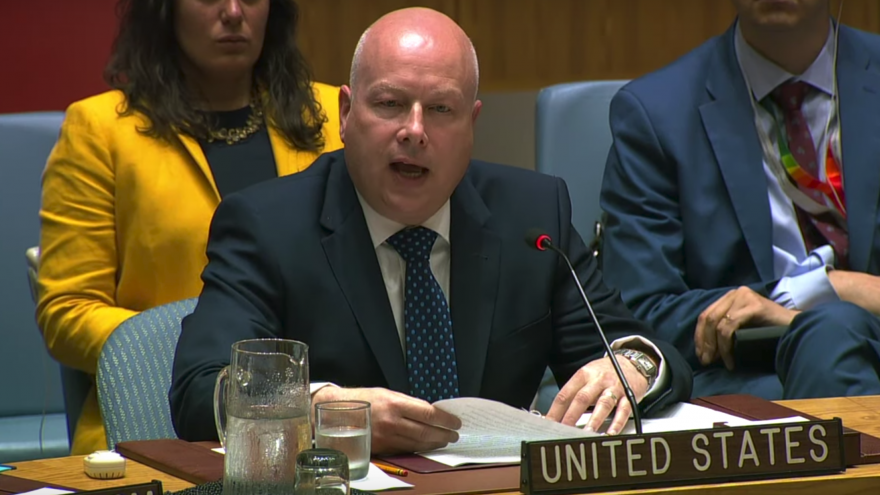The Palestinian aspiration to a have a capital in Jerusalem is “not a right,” and “international consensus is not international law” when it comes to creating a Palestinian state, said U.S. Middle East envoy Jason Greenblatt on Tuesday.
“It is true that the PLO and the Palestinian Authority continue to assert that east Jerusalem must be a capital for the Palestinians,” Greenblatt told the U.N. Security Council, “but let’s remember—an aspiration is not a right.”
Addressing a regularly scheduled UNSC on “the situation in the Middle East,” Greenblatt said that “international consensus is not international law. So let’s stop kidding ourselves. If a so-called international consensus had been able to resolve the Israeli-Palestinian conflict, it would have done so decades ago. It didn’t.”
Greenblatt emphasized the limitations of international law in putting an end to the decades-long conflict, arguing that past U.N. resolutions have been “heavily negotiated, purposely ambiguously worded,” that Israelis and Palestinians have different interpretations of the law and that neither has recognized the jurisdiction of any international court.
He also said that “no international consensus or interpretation of international law will persuade the United States or Israel that a city in which Jews have lived and worshipped for nearly 3,000 years and [which] has been the capital of the Jewish state for 70 years, is not—today and forever—the capital of Israel.”
He noted that his statement did not have a bearing on the future borders of the city.
Additionally, Greenblatt criticized those who “weaponize” the term “occupation” to demonize Israel, and noted that Israel has already relinquished more than 88 percent of the territory it captured after it was attacked in 1967.
He further condemned Hamas, which controls Gaza, as a “terror organization.”
Greenblatt’s remarks came just minutes after U.N. Under-Secretary-General for Political and Peacebuilding Affairs Rosemary DiCarlo insisted, “We must work together to bring Israelis and Palestinians back to the negotiating table in order to resolve the conflict on the basis of international law, relevant U.N. resolutions and previous agreements.”


























